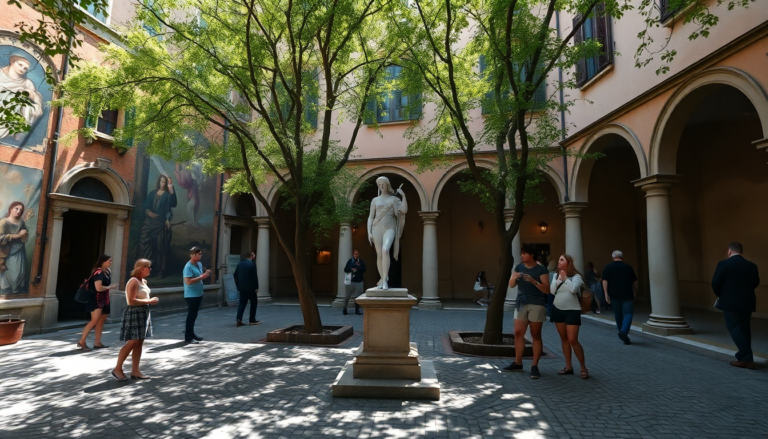Argomenti trattati
In the heart of Verona, a city steeped in romance and literary history, the courtyard of Juliet’s house has long been a must-see for tourists. With its enchanting atmosphere and the iconic statue of Juliet, it has attracted countless visitors, often resulting in crowded conditions. To improve the experience, authorities have announced a new online reservation system for entry, aimed at alleviating the overtourism that has plagued this beloved site.
The transformation of a beloved site
For decades, the courtyard of Juliet’s house has been a symbol of love and romance, drawing both locals and tourists alike. However, the overwhelming number of visitors has made it challenging to enjoy the space fully. The city of Verona, in partnership with the Superintendency of Cultural Heritage, has taken steps to revamp how visitors access the courtyard. Starting soon, tourists will be required to purchase a ticket online ahead of their visit.
This initiative is designed to streamline access and reduce the congestion that has become synonymous with the area. By implementing a reservation system, the authorities hope to create a more peaceful environment, allowing visitors to appreciate the beauty of the courtyard without the stress of large crowds. The new approach also aims to restore a sense of dignity to a site that deserves more than just hurried selfies.
Enhancing the visitor experience
The ticketing system is not merely a way to control foot traffic; it represents a significant shift in how the city values its cultural heritage. Visitors will enter through Piazza Navona, passing through sections of the Teatro Nuovo before reaching the famed courtyard. This pathway is designed to offer a more immersive experience, allowing travelers from around the globe to connect with the history and beauty of Verona.
According to Damiano Tommasi, the mayor of Verona, this collaboration with property owners marks a historic step for the city. He mentioned that the agreement will enhance visitor safety and contribute to the preservation of the area, ultimately enriching the experience for all who come to pay homage to the legendary love story of Romeo and Juliet.
A future of creativity and accessibility
The partnership also includes plans for a design competition that will focus on revitalizing the entire area surrounding Juliet’s house. This effort aims to prioritize creativity, accessibility, and beauty, ensuring that the site remains a welcoming destination for millions who seek a touch of romance and poetry each year.
While the romance of Verona remains intact, the changes to how visitors access the courtyard will undoubtedly enhance its allure. By requiring reservations, the city hopes to maintain the site’s popularity while providing a more exclusive and enjoyable experience for those who wish to explore this iconic location.
Looking ahead
In an interview, Barbara Bissoli, the Deputy Mayor and Councillor for Monumental Architecture and Cultural Heritage, expressed optimism about the new agreement. She emphasized the importance of balancing public and private interests in preserving the courtyard and its significance as a cultural landmark. As one of the most visited cultural sites in Verona, it stands as a testament to the enduring power of love, drawing visitors like a secular pilgrimage.
The changes in accessing Juliet’s house courtyard mark a new chapter for this beloved landmark. As the city embraces a more structured approach to tourism, it hopes to foster a deeper appreciation for the history and romance that Verona embodies. With the new reservation system in place, visitors can look forward to a more enriching and peaceful experience when they step into the world of Juliet Capulet.

